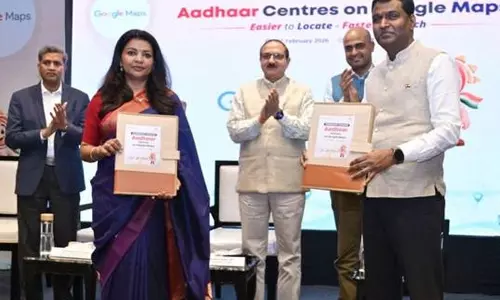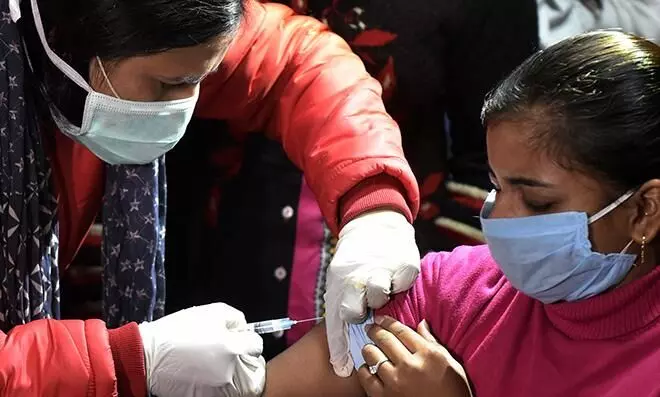
The challenge of tackling vaccine hesitancy in India is high
text_fieldsRepresentative Image
As vaccination against the novel Coronavirus has begun with the advent of New Year, there are still many challenges to be tackled in order to ensure effective inoculation. India has completed it three-phase dry runs across the country and is to begin its vaccination drive on January 16th.
The authorized vaccines are proven to be safe and 95 per cent effective in their clinical trials but yet vaccine hesitancy is one of the biggest challenges in many places exhibited not only by the general public but also by some of the healthcare workers. Vaccine hesitancy is the delay in acceptance or refusal of vaccines despite their availability.
The tumultuous year 2020 with its global lockdown had served as the breeding ground for multitudes of conspiracy theories regarding the vaccine. People are highly misinformed from the internet and are also concerned about the long term after-effects of these vaccines.
In the many surveys conducted, it was concluded that older people are more hesitant than youngsters in taking the vaccine shots probably because of the concerns regarding the complications that could arise post taking it. Pregnant and breastfeeding women are suspicious if the vaccine could harm their fertility or infants. People in Africa and also in India are skeptical if they are being merely used as 'guinea pigs' to be experimented upon.
Some others are claiming that the making and authorization of vaccines were rushed and hence unsafe. There are people living under the assumption that they do not need the vaccine as their immune system is quite strong to fight the virus.
People, though a few, refusing to take these shots could prompt the outbreak to continue for years and also render all the efforts and sacrifice done to make and authorize these vaccines a waste.
The vaccination drive can be termed a success only if all the people are covered in the process. Health departments are now focusing on awareness campaigns about the safety and effectiveness of the vaccine which is the need of the hour so that the apprehensions of the general public are eliminated.
The drug companies and governments being honest about the possible side effects of the vaccine to the people, providing reassurance about its safety, addressing the vaccine related questions, telling stories, etc can combat the hesitancy in people up to a limit.
Role models also play a significant part. The live footage of presidents and rulers of many countries shown in the news getting their doses of vaccine is a means of declaring its safety which in turn has boosted the confidence of the people in their nations towards the vaccines.






















